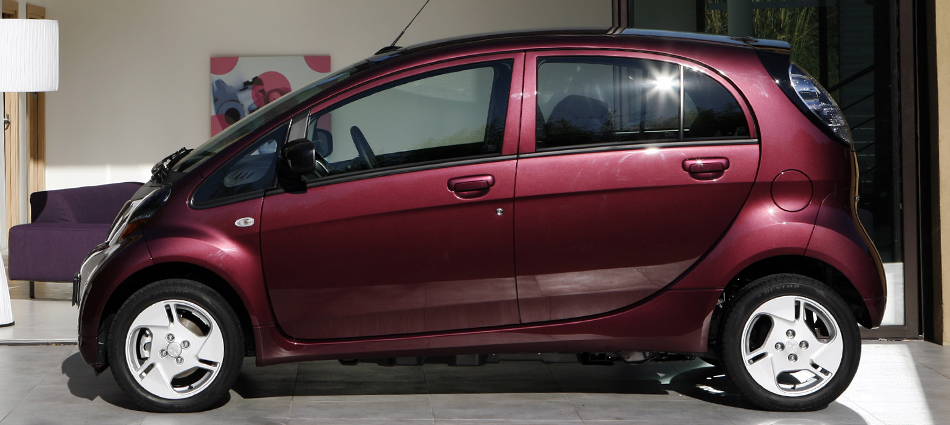The Thinker's Garage Pondering Automotive History, Design and Culture

Remember – stay open minded
I recently had the opportunity to drive a Nissan Leaf, the first electric car I’ve actually driven and the first I’ve had a ride in since the Mitsubishi i-MiEV. I came away from the i-MiEV thoroughly unimpressed. Yes it was silent and seemed to move acceptably but the basic city car appearance and terrible interior (the plastics were awful) meant I came away from it unable to fathom the ludicrous list price. The Leaf, on the other hand, seems like it should be more of a game changer.
Mitsubishi I-MiEV was expensive and comparatively unrefined
At first impression it felt very futuristic, and while the smooth silent drivetrain took some adjusting to, once I’d had an opportunity to get my head around it the Leaf began to really impress me. Not only was it silent, but thanks to the nature of the electric motor and its reasonably capable chassis, the Leaf’s noise, vibration and harshness levels were impressively low from the driver’s seat. Without throttle bodies to open, funny power and torque curves to deal with and gears to change, progress was smooth and fuss free. It made me realise that environmental aspect aside, I think there is a lot for the average motorist to like about the Leaf – its swift, nimble, effortless, and silent. It’s not exactly a stereotypical enthusiast’s car and the battery range won’t cater to everyone’s needs, but many motorists don’t drive hard and only travel within a few suburbs. For older drivers who don’t tend to go as far, or for a second car that’s used for school drop offs and grocery shopping during the week, the Leaf would be ideal.
Why then, with Nissan currently offering the Leaf at $39,990 drive away in Australia, have sales been so miniscule? I believe many car buyers don’t realise that how realistic a prospect a Leaf could be for them, while others are unsure what they would be getting themselves into. There would also be a high proportion that is too closed minded or conservative to jump on board with new technology.
It’s not just the Leaf – many more conventional cars suffer similar fates – when a car’s merits are somewhat offbeat, it’s easy for them to simply drop off the radar, particularly if the weight of a large marketing department isn’t behind them. I don’t necessarily blame car shoppers for this – often people just want something simple and if a car isn’t common and isn’t on the road or on forecourts it can simply slip the mind of the collective consciousness.
Car buyers have an unprecedented amount of choice now – use this to your advantage!
So next time you go car shopping, look beyond the obvious and open-mindedly research your purchase as extensively as you can – you might be surprised what’s out there.
by Andrew Marshall

